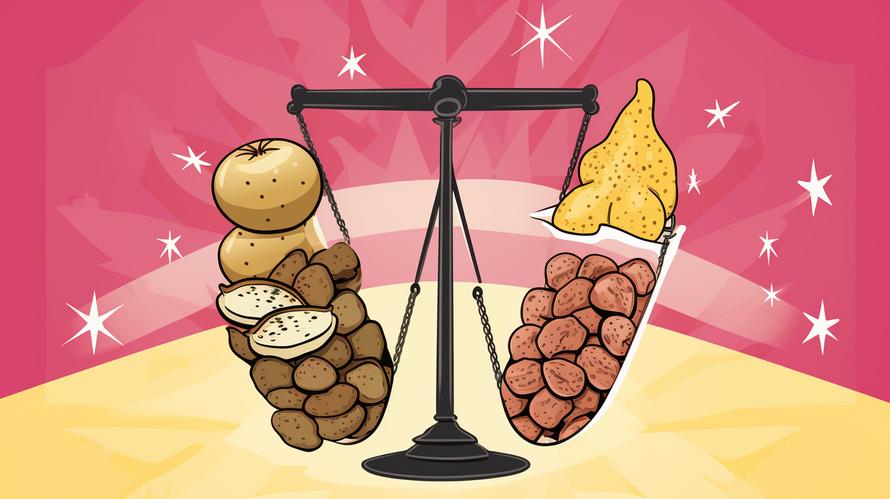You’re doing all the right things. You visit your doctor, take your medications, watch your diet. But, if you’re one of the millions who have faced breast cancer, there is another factor you need to understand: the powerful impact of what’s on your plate, especially when it comes to starchy foods.
Now, don’t get me wrong, starchy foods can be part of a balanced diet. However, if you’ve fought the battle against breast cancer and won, it’s crucial to know that the war may not be entirely over. The foods you choose every day could tip the scales in favor of or against a recurrence of this dreaded disease.
A study at the University of California, San Diego put the spotlight on carbohydrates and, more specifically, starches. The research noted a startling link: women who increased their starch intake had a higher chance of cancer making an unwanted comeback. To put it bluntly, more starch equated to more risk.
Imagine you’re one of the 3,000+ breast cancer survivors keenly monitored for an average of seven years. You notice an uptick in your carbohydrate consumption, not thinking much of it. Later, to your shock, you learn that this seemingly benign change in diet could nudge open the door for cancer’s return.
Why starch, you ask? It falls under the broader category of carbohydrates, which includes sugars, fibers, and, you guessed it—starches. They are a source of energy, but when it comes to recovering from or staving off cancer, quantity and quality matter. Not all carbs are created equal.
Starchy foods are often packed with quick-release glucose. This blood sugar spike can create an environment that’s more hospitable to cancer cells. After all, cancer is known for its voracious energy appetite. Feed it glucose, and it could thrive. Hence, the harsh reality that those comfort foods like potatoes, bread, and pasta may need a second thought if they hold a regular spot on your plate.
Does this mean you should ditch all carbs? Absolutely not. It’s about balance and making informed choices. Complex carbohydrates found in vegetables, whole grains, and legumes, for instance, release glucose slowly and provide a wealth of nutrients without the blood sugar rush.
The take-home message rings clear: moderation and mindfulness are essential. Your diet isn’t just a routine; it’s a part of your recovery toolkit—an ally in your ongoing battle against cancer. So pay attention to the carbs, especially the starchy culprits. Curling up with a baked potato might be comforting, but it’s worth considering the long-term impact on your health and cancer risk.
Now, how about those other strategies like yoga and meditation that the Mayo Clinic recommends? They’re priceless. They can soothe your mind, fortify your body, and lend you the strength to maintain a healthful diet, perhaps helping you sidestep the starchy temptations that could undermine your hard-won victory over breast cancer.
Picture a life with less worry about recurrence, more energy to enjoy every moment, a balanced diet that satisfies without triggering concerns, and peace of mind knowing that the food on your plate supports your health rather than jeopardizing it. That’s a life worth carving out, bite by mindful bite.
Stay strong, stay aware, and let every food choice you make be a cornerstone in building a healthier, cancer-resistant future.



